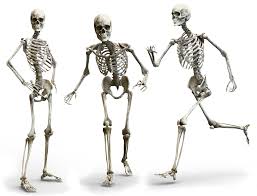Introduction
Bone health is vital for maintaining a robust and active lifestyle. Our bones not only support our bodies but also play a crucial role in protecting internal organs and facilitating movement.
However, many of us overlook the importance of maintaining bone health until we face issues like fractures or osteoporosis. This guide aims to shed light on the essentials of bone health and how preventive measures can help you maintain strong bones throughout your life.
Understanding Bone Health
Bones are living tissues that constantly break down and regenerate. As we age, this process slows down, leading to bone density loss. Peak bone mass is typically achieved around age 30, after which bones tend to weaken. Therefore, taking proactive steps to support bone health is essential for preventing conditions like osteoporosis, fractures, and other skeletal issues.
Why is Bone Health Important?
- Preventing Fractures: Weak bones increase the risk of fractures, especially in older adults.
- Avoiding Osteoporosis: A condition characterized by low bone mass, making bones brittle and prone to breaking.
- Maintaining Mobility: Strong bones help support daily activities and reduce the risk of mobility-related issues as you age.
- Reducing Joint Pain: Better bone health can help minimize the strain on joints, reducing discomfort from arthritis.
Key Factors Influencing Bone Health
- Calcium and Vitamin D Intake
- Calcium is a crucial mineral for building and maintaining bone strength. Adults generally need about 1,000-1,200 mg of calcium per day, depending on age and gender.
- Vitamin D helps the body absorb calcium and is just as vital. The recommended daily intake is between 600-800 IU, though some individuals may require more based on lifestyle or health conditions.
- Sources of Calcium and Vitamin D: Dairy products, leafy green vegetables, fortified cereals, fatty fish, and exposure to sunlight.
- Physical Activity
- Weight-bearing exercises, such as walking, running, and strength training, stimulate bone growth and improve density.
- Aim for at least 30 minutes of moderate physical activity most days of the week.
- Types of Exercise Beneficial for Bone Health: Resistance training, weightlifting, yoga, and high-impact sports.
- Avoiding Harmful Habits
- Smoking and Alcohol: Both smoking and excessive alcohol consumption can reduce bone density. Limiting or avoiding these can significantly improve bone health.
- Caffeine: High caffeine intake has been linked to decreased calcium absorption. Moderating coffee and caffeinated beverage consumption can help maintain bone strength.
- Hormonal Balance
- Hormones such as estrogen in women and testosterone in men play an important role in bone health. Menopause or conditions that affect hormone levels can lead to accelerated bone loss.
- Hormone Therapy and Bone Health: Consulting with a healthcare professional about hormone replacement therapy could be beneficial in some cases.
- Medical Conditions and Medications
- Certain medical conditions (e.g., rheumatoid arthritis, thyroid disorders) and medications (e.g., corticosteroids) can negatively impact bone health.
- Regular Checkups: Individuals with such conditions should have routine bone density tests and take preventive steps to protect their bone health.
Steps to Maintain and Improve Bone Health
- Balanced Diet for Bone Strength
- Include foods rich in calcium and vitamin D, such as dairy, almonds, and fatty fish.
- Consume sufficient protein, which is crucial for bone structure, but avoid high-protein diets that may increase calcium loss.
- Exercise Regularly
- Combine aerobic exercises with resistance training to strengthen bones.
- Focus on flexibility and balance exercises like yoga or Tai Chi to reduce the risk of falls.
- Supplementation
- If dietary intake is insufficient, consider calcium and vitamin D supplements.
- Consult a healthcare professional before starting any supplementation, especially for people with medical conditions.
- Lifestyle Changes
- Limit alcohol intake to no more than one drink per day for women and two for men.
- Quit smoking to reduce the risk of bone mass loss.
- Routine Bone Density Testing
- Regular screenings for osteoporosis can help detect early bone loss.
- Women over 65 and men over 70 are generally advised to undergo bone density tests. However, younger individuals with risk factors should also consider screening.
Innovative Approaches to Bone Health
With technological advancements, there are modern ways to monitor and improve bone health:
- Portable Health Kiosks: Health ATMs or smart health kiosks can provide bone density testing, assess general health, and offer personalized recommendations.
- Telemedicine Consultations: Virtual consultations can help individuals understand their bone health status and get professional advice on preventive measures.
- Health Apps: Mobile apps for fitness tracking, nutrition, and reminders for supplements can play a significant role in daily health management.
Conclusion
Bone health is a lifelong commitment that requires attention to diet, exercise, and lifestyle. By adopting a proactive approach to maintaining bone strength, you can reduce the risk of osteoporosis, fractures, and other bone-related problems as you age. Clinics On Cloud provides various preventive healthcare solutions, including telemedicine and Health ATMs, to help monitor and improve your overall health. Take charge of your bone health today and ensure a stronger tomorrow.


